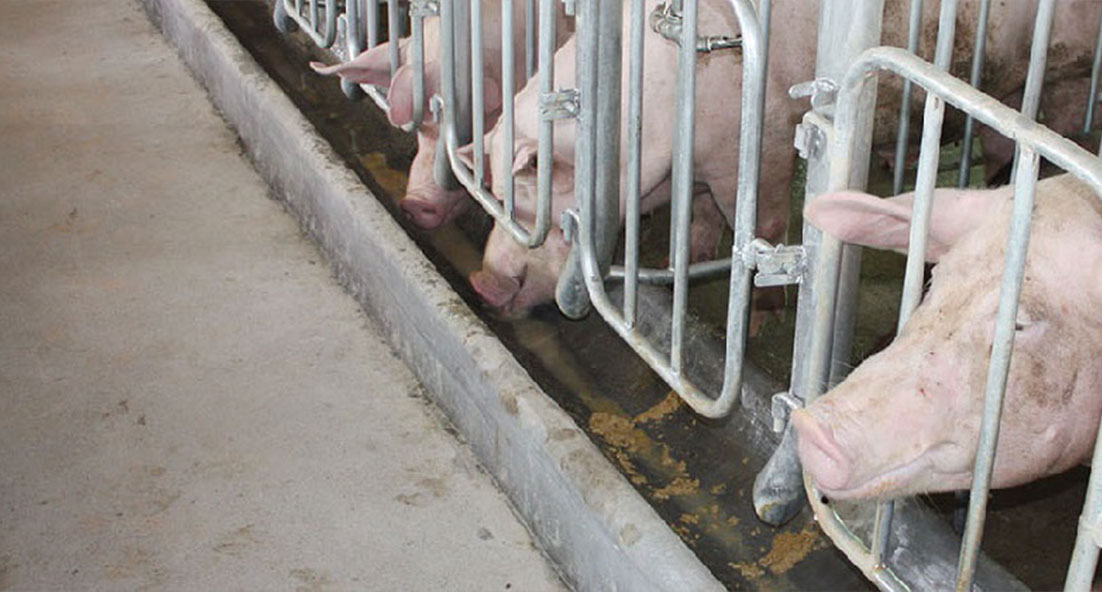
The type of repair will obviously be dependent upon the quantity of repair needed, the time you have for it to be ready for use, the weather, the temperature and also as to whether you are only completing a floor area or whether you are needing vertical repairs!
SHALLOW REPAIRS (under 3mm)
Easipatch
If it is a very thin surface repair that is required, where the base is good but the aggregate is starting to become exposed and rough, then a VERY thin screed can be easily accomplished using Polycote Easipatch. This is unbelievably hard and will not only reach the strength of a power floated concrete (40N/mm) in only 2 hours but will go on to 80N/mm in only 1 day!
Easipatch could be easily described as a similar consistency as soup and can be poured onto the concrete and then smoothed out literally as thin as you like. It is extremely chemical resistant, will take a huge amount of abuse from cows/animals and can even be driven over by the heaviest farm vehicles!!
Cretex EP
If you have holes/damage sporadically in different areas of the trough, then Cretex EP is are very good as they can be mixed in small quantities and individual repairs made. Cretex EP is incredibly strong, fast curing and can be applied in any thickness, even down to a literal feather-edge. Again, Cretex EP can be run over by any farm machinery and is extremely strong and chemical resistant.
‘DEEP’ REPAIRS (over 3mm)
Cretex Rapid
Exactly as the name suggests, this offers a very fast cure in only 2-3 hours before being subjected to physical abuse and 4-6 hours before being subjected to chemical attack from silage effluent, etc. This is actually a cementitious product, is extremely easy to use and can be applied to both horizontal and vertical surfaces. Another major benefit of this product is that it can be applied to damp surfaces. Not that it normally causes any problems in food troughs but just by way of fact, Cretex Rapid is that it is not as chemical resistant as the twin pack epoxy versions as mentioned above. Again, ‘Rapid’ is excellent for coving, kerb and edge repairs.
Cretex EP Mortar
This comes in a 30kg mix and is excellent for virtually any floor repair. It is indeed a cheap option than the Cretex EP as mentioned above. However, it is a 30kg mix and it is advised to mix the whole unit at once to avoid any incorrect mixing. However, one benefit is that it can be mixed either thick or thin, depending upon the amount of repair required and can even be used as a mortar to create a coving/kerb repair.
Easi-screed
If you are looking for a self-smoothing product that you can pour into the base, Easi-screed is your answer. Simply mix and pour and provided you are applying it in such an area at least 5mm thick, Easi-screed will be a fantastic and easy option. Reaching a strength of 40N/mm squared, it is very strong, very fast and very easy to lay.
Obviously being self-smoothing, it is only suitable for contained, flat surfaces.
Bondex
Bondex is a very interesting product. There are many and varied types of latex admixtures available on the market today, but there are very very few that will get anywhere near the strength of Bondex. Mix the product with sharp sand and cement and you will have a very strong repair mortar that can be laid in very layers as thin as 6mm.
As the product is mixed with standard sand and cement, this makes the product an ideal option ideal for areas needing a lot of material, areas requiring deep repairs.
Should you wish to apply very thin repairs, then we are happy to offer you a very good tip:
Mix the Bondex neat with (1:1) Polycote Kiln dried Sand and Cement. This can then be mixed as wet as you like and can then be poured/scraped over the surface, which will provide an incredibly hard repair.
